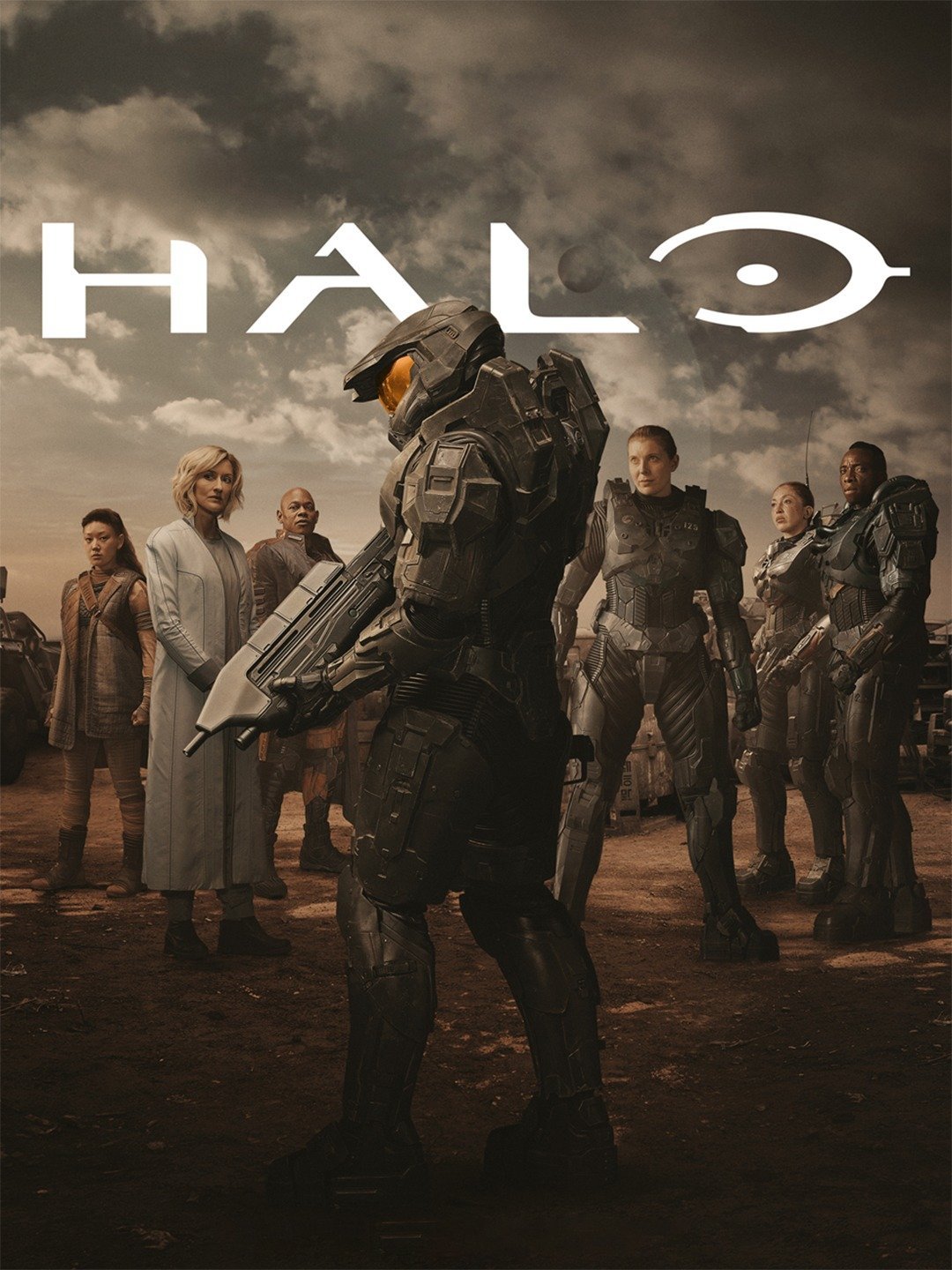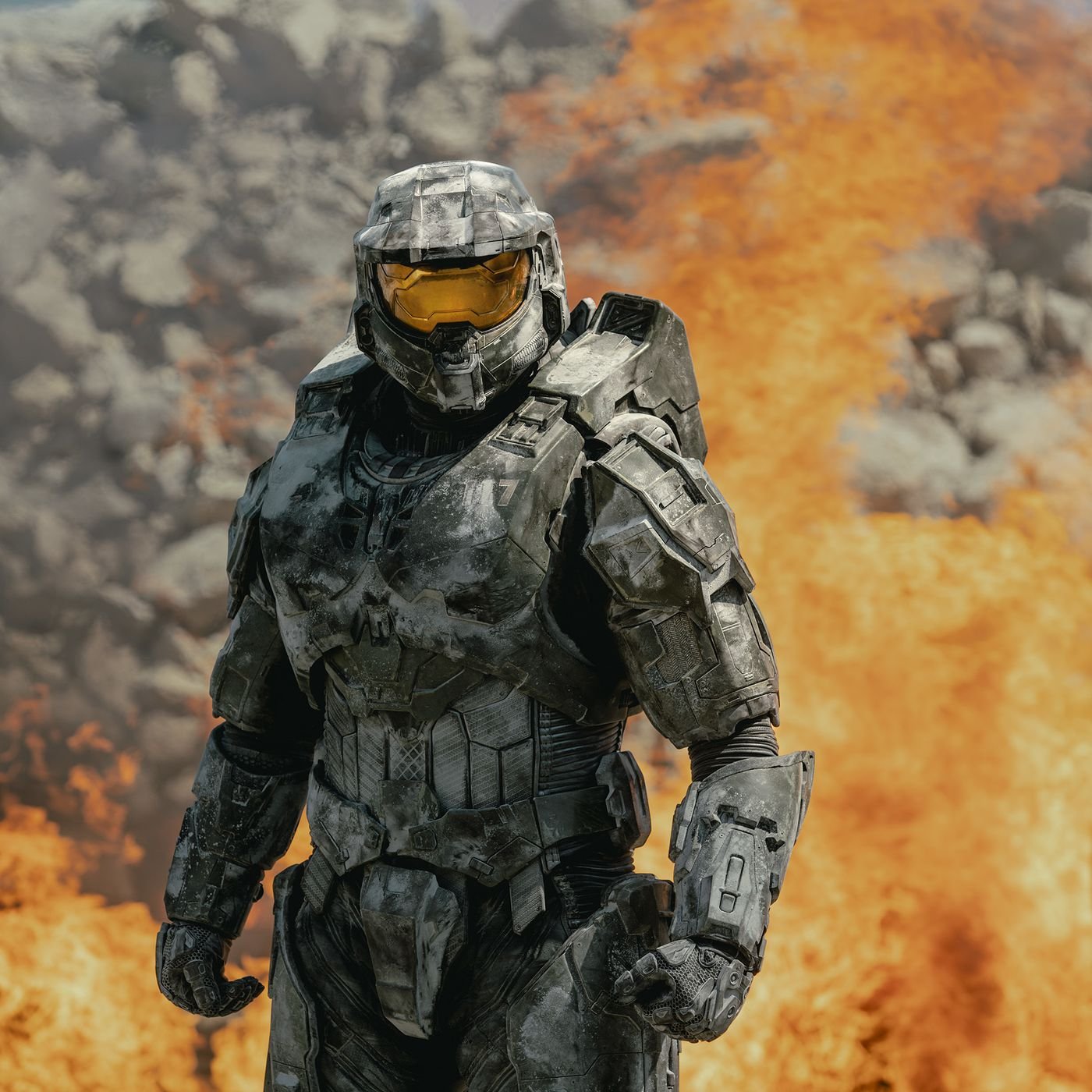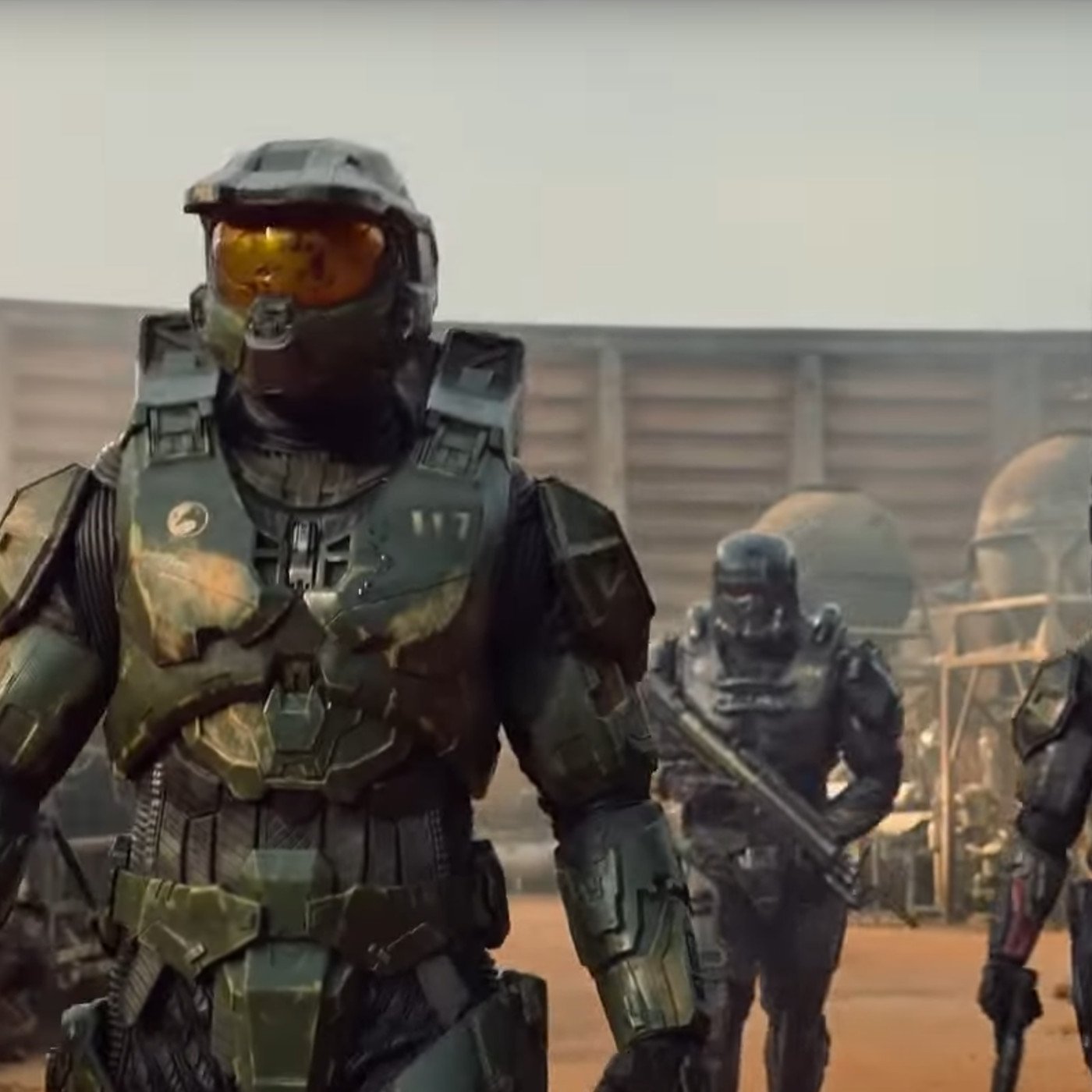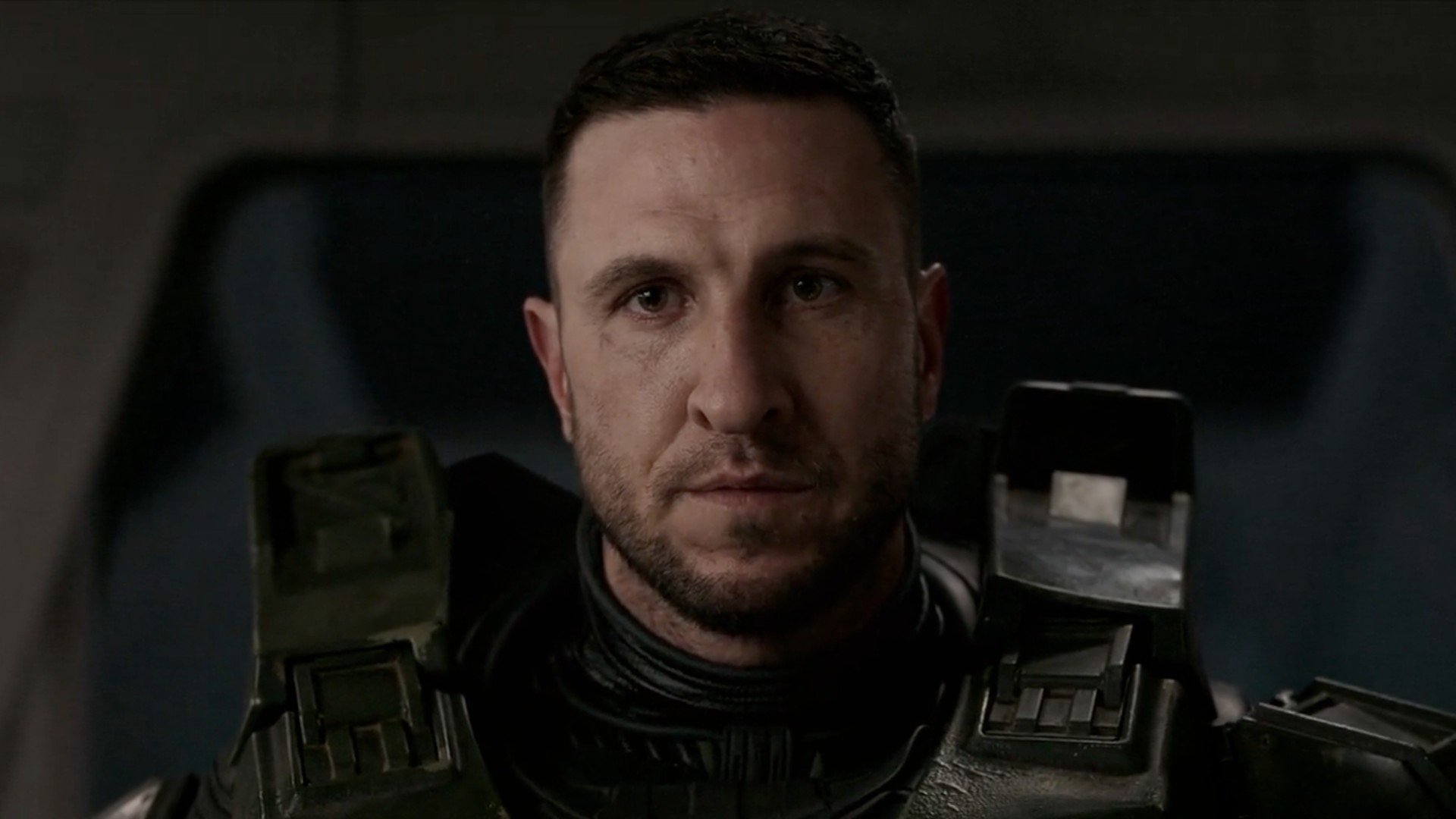Halo’s got some major problems
I normally don’t like to issue a hit piece, at all really, or at least not until the media has had enough to time to convince me one way or another; usually that means a full season with shows, but with movies, unfortunately, that means I’ve got to sit through the whole thing. Because endings can really tie things together or tear them apart. Take Sharp Objects, for example. Thought it was a great show, but then the ending, a hurried “here’s what happened” montage, killed the show for me. On the other hand, take the film The Power of the Dog. I was bored out of my mind for two hours, but then the last 6 minutes made every minute of the movie worth it.
Though the action sequences are few and far between, they do look good when not relying too heavily on CGI
But we’re eight episodes into what appears to be a nine episode Halo season now and I’m feeling pretty comfortable that whatever they can come up with in the final episode isn’t going to make up for the slog that came before it.
The pilot had some promise. Opening with a flashy set piece on a desert planet, we see the de facto princess of the planet Madrigal (🎶where all the people are fantastical and magical, welcome to the planet Madrigal🎶) out searching for drugs with her friends and whining about getting off the planet as soon as she can figure a way out. The storytellers among us will know that this means she’ll eventually yearn to return, and as her friends are dismembered by an invisible alien force, the steps of her story become apparent. Now, I’m not a Halo player—I’ve actually never once even picked up the game, the closest I’ve come is the Forza Horizon 4 Showcase event where you drive the Warthog vehicle the Marines use—so I don’t know if Kwan Ha is important to the story of the games or not. But it certainly doesn’t seem like she’s important to the story of the show. So, long story short, aliens attack, Master Chief Johnny falls in from the sky, dispatches with the aliens with relative ease with the help from his team, and for some unexpected reason, some ghost in the machine, he spares Kwan Ha, the only survivor, even after the UNSC ordered her murdered for threatening to blame the attack on them. This sets up a false flag Baby Yoda situation, but quite quickly, MC Johnny dumps her with Bokeem Woodbine and those two have their C plots and their universally poorly received back door pilot together while Johnny looks sadder than The Deep in a trailer for The Boys season two.
The Spartans certainly look the part. I wouldn’t want to owe them money, that’s for sure.
And thus ends the action for an excruciatingly long period of time. I wasn’t expecting Halo to be sci-fi John Wick, but I was expecting it to be Halo. Like I said, I never played the games (PlayStation all the way), but I do know a little about them. Elite soldiers called Spartans fight aliens with guns and stuff and it’s a war. It’s a first person shooter, the crux of the game is kind of in the genre title, not necessarily the story. But after the pilot’s action sequence, MC Johnny tends to walk around looking very sad, a lot. Pretty much all the time. He looks at stuff and is sad. He looks at himself in the mirror and gets sad. He looks at his old house, remembers sad stuff, and then gets sad about it. Other characters are cryptic. There’s some half ass political intrigue as well, as the UNSC has its own internal power struggle between Natascha McElhone’s Dr. Halsey and the UNSC brass, including her own ex-husband and daughter (which is a strained relationship they seem to bring up a lot, which is, I imagine, an attempt to create a mystery about their relationship, but nothing any of those characters do make me care anything about their personal lives). A lot of compartmentalization, a lot of “But we can’t do this to Master Chief, he’s too important!” Now, if you are a Halo player or you’re just familiar with the lore for some reason, maybe that’s not a silly thing for people to do in the Halo world. But for someone with no familiarity other than listening to the dull three round burst of the ranked playlist rifle on a Twitch stream over and over again, it’s very odd. Why is he so important? They don’t do a sufficient job of explaining why he specifically is so much more important to the public than other Spartans or officers or anyone else. But that’s a small complaint compared to the rest.
It’s so bloody boring.
On today’s segment of Good Idea, Bad Idea, it’s a bad idea to back door a pilot for characters people don’t like at the expense of sidelining your flagship character.
There are many movies that should have been miniseries. The need to pack too much information into two hours of film can overstuff a movie, whereas a miniseries can go into more depth and have a more deliberate pace with more meaningful character interactions. Halo feels like a two hour film stretched into a nine hour season. The first episode throws a lot at you, makes you think it’s going to stay that fast-paced, or at least something close to it. They let you know the “good guys” aren’t good guys, since they go from 0 to child murder immediately. Kwan Ha’s threat to claim that the UNSC Spartans (sounds like a college football team when you put it that way) were to blame for the attack on Madrigal are met with the vaguely named and then immediately explained “Article 72”, which is a kill order. They had asked her to record a video message thanking the Spartans for saving her when she made the threat; apparently just not recording anything and putting her in a cell, or trying to convince her further after bringing her to their home base never occurred to anyone. There’s some light protestation, some equivocating, and then the attempt to make you care for MC Johnny by saying “Hey, his bosses are bad, but he’s not going to murder this teenager”. A flurry of activity follows, then a chase, and a slight meandering before Master Chief returns and they all chalk it up to a whoopsie.
Master Chief with his trademark brooding look
Johnny gets tested, then it’s business as usual—especially if his business is brooding. And so goes the series, minus an entire episode devoted to Kwan Ha’s return to Madrigal and Bokeem Woodbine’s poor decision making. Makee shows up, a woman with the same special abilities as Master Chief when interacting with the MacGuffin. She’s working for the enemy alien Covenant, because she was apparently kidnapped by them as a child from a planet where she was living in squalor, under what looks like militaristic fascism, and then presumably indoctrinated because of her abilities. There might be something interesting here, but ever since she starting hanging out with Johnny, she also seems to spend all her time looking at stuff and thinking. Then, as her horrific childhood is recollected in a flashback, a predictably similar act of cruelty seems to sway her murky allegiance. Yes, the story here feels old—it’s not necessarily that more characters wear gray hats than we’re accustomed to seeing over the past 10 years or so, but rather that so many characters are just black hats on the “right side” or wear no hats at all. Not only that, the story beats feel all too familiar. But I’m willing to excuse a fair bit of that—after all, Halo is drawing its story from a video game series that’s over 20 years old and it’s tied into existing lore. The writers can’t make wholesale changes to the game’s story and I understand those limitations. But they can do something with it, yet the show seems determined to do as little as possible. Sparse storytelling in an FPS game is expected—I don’t buy Call of Duty for the story (and increasingly, I don’t buy Call of Duty at all, but that’s a different story for another time), but it’s nice to know that there is one to justify the unending hailstorm of bullets.
Bokeem Woodbine deserves better
The pilot episode drops some very on-the-nose dialogue about losing humanity, but it quickly becomes clear that the line is strictly for the audience; everyone in the show, at least on the UNSC side, has already lost their humanity. Whether it be the politicking administrators, cold, unfeeling scientists, or their emotion-suppressed experiments, there’s precious little humanity on display in Halo. Kwan is one of the few characters that act like a human, but she acts like a human teenager, which is generally unbearable by itself. As a side note, I don’t understand why so many shows and movies insist of shoehorning teenage drama into their storylines, as if people won’t be able to identify with the characters unless at least one person is making stupid decisions with their as-of-yet not fully formed minds. The other human character comes in the form of Bokeem Woodbine’s Soren, MC Johnny’s friend and Spartan program fugitive. And this is perhaps one of the biggest sins of Halo—they all but completely waste Bokeem Woodbine. He walks around looking tough and cool and has very little inner conflict over doing the right thing and protecting Kwan, which is a nice change of pace compared to industry standard reluctant protector, but that Woodbine magic is just not there. He’s a bigger presence on screen than most characters in Halo, but he’s still a far cry from the peak of his powers, as seen in Fargo season two.
MC Johnny wonders “if there’s something over there that I can look at and be sad.”
Master Chief’s journey through the series thus far mirrors my own. I look at this stuff and wait for something to happen, just as he does. He is confused. I am confused. In a show with so much time to fill and so much story to tell, they seem to pass the time by neither telling the story nor filling it with glossy action set pieces. It can’t be for want of budget; the show looks slick and fresh and shiny. The CGI is excellent for the most part and the locations look and feel real, even if they’re largely generic. They’re putting in the time and effort to make this show look like a Triple-A series; but it seems to end there.
You’re inundated with minor details that seem to be important and then are dismissed. Here are a few:
Dr. Halsey’s Cortana program relies on an illegal cloning process that she was ordered to stop doing, yet she did it anyway by cloning herself. It’s brought up, the repercussions are small.
As her clone is about to have her brain sucked out via syringe and injected into Master Chief to create the Cortana AI in his brain (as is what I imagine Apple has to do to put Siri on each iPhone), Halsey’s already creepy lab assistant starts to kiss the doomed, restrained, and paralyzed woman (or, in simpler terms, he attempts sexual assault) before the procedure is completed, though he is interrupted and then his apparent attraction to Halsey is never brought up again and seemingly has nothing to do with the story. It’s just weird and creepy for the sake of being weird and creepy. Let’s face it, mad scientist lab assistants are already predisposed to being creeps in fiction, but this is taking it another step. Get this guy a sci-fi Tinder account, he needs a night off. And then probably years of therapy and possibly a light prison sentence.
A real meet-cute; Halo puts the romance in “first person shooter”
There’s a chip inside the Spartans that controls their emotional response, but it’s apparently incredibly easy to remove, and when it’s removed, despite the fact the brass is alerted to the abnormality, they do nothing about it other than scratch their heads. These Spartans are the unstoppable warriors, the only line of defense against the Covenant, worth 100 Marines a piece, trained and modified from a very young age—and yet when they start doing DIY surgery on themselves, it’s a whole lot of “let’s keep an eye on this, I’m sure it’ll be fine”. They don’t have a failsafe for this? There’s no lysine contingency for Spartans? If the Spartans turn, they’re just berserk war machines fighting against the humans?
There’s a massive war on that’s been waged for years over no apparent reason that some people believe is just propaganda. Our own current reality aside, how can humanity be at an extinction level war for years and have whole planets believe their very enemy is a myth, as the people of Madrigal do, before the myth dismembers a group of teenagers and then everyone else?
Cuddlier than a Krogan….right?
In the light of the great, short season shows we’ve been getting lately (some of which I mentioned here), including some other sci-fi/fantasy series, most notably The Mandalorian and The Book of Boba Fett, and despite the big budget looks, Halo falls woefully short. It wants to ask the big questions, but doesn’t know how, leaving us with the prospect of empathizing with Master Chief because he didn’t murder a child when he was told to; this is kind of the bare minimum of what it takes to be even considered half decent. Not killing children is a pretty damn low bar. Am I supposed to jump from my sofa and proclaim “I too would not murder a child, Master Chief! You are not the emotionless meat-robot I believed you were, but rather a saintly deliverer of protective death only! We are the same, I empathize with you! You took off your helmet and you have a face! I have a face as well! We could not be more similar!”
Often times it feels too much like they were targeting shows that aren’t on the level of the prestige TV Halo is pretending to be. Halo is a show that desperately wants to mean something, but it just rings hollow. It either needs to be much better or much worse; either one will do. If it starts dipping into depths of badness, it could become one of those shows that’s so bad, you can’t help but watch for the cheese factor, wondering if it’ll ever get better, like Westworld or Falling Skies. If it steps up and actually does improve, that would be fine too. I’d love to be genuinely entertained by Halo, the way I was by Moon Knight or Severance. In other words, it needs to either become a whole lot more True Detective or a whole lot more NCIS. But right now, the show doesn’t hit enough beats to be either.








